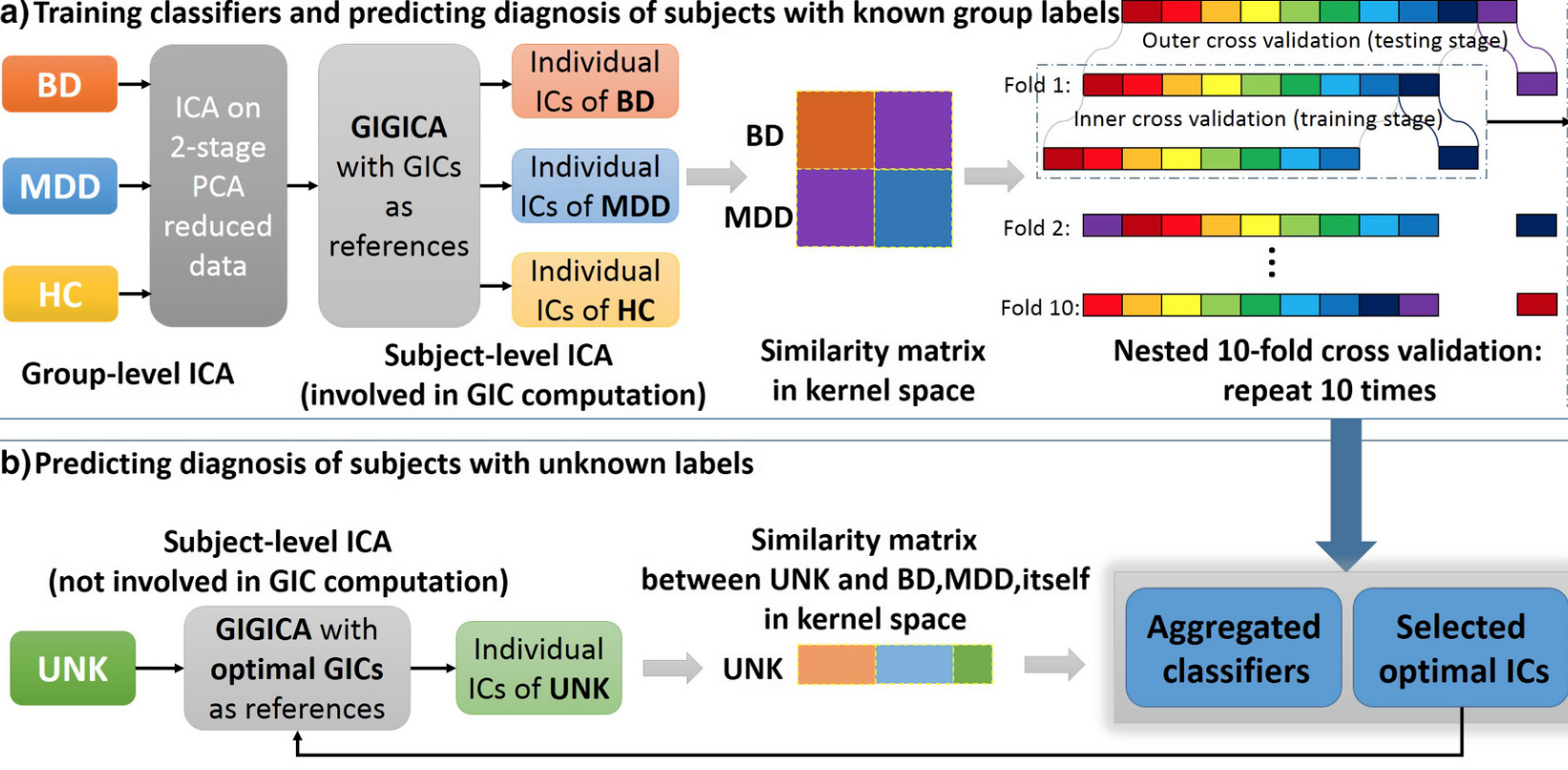Lawson Health Research Institute, Mind Research Network and Brainnetome Center researchers have developed an algorithm that analyzes brain scans to classify illness in patients with complex mood disorders and help predict their response to medication.
A recent study analyzed and compared fMRI scans of those with MDD, bipolar I, and no history of mental illness, and found that each group’s brain networks differed, including regions in the default mode network and thalamus.
When tested against participants with a known MDD or Bipolar I diagnosis, the algorithm correctly classified illness with 92.4 per cent accuracy.
The team also imaged the brains of 12 complex mood disorder patients with out a clear diagnosis, to predict diagnosis and examine medication response.
The researchers hypothesized that participants classified by the algorithm as having MDD would respond to antidepressants while those classified as having bipolar I would respond to mood stabilizers. When tested with the complex patients, 11 out of 12 responded to the medication predicted by the algorithm.
According to lead researcher Elizabeth Osuch:: “This study takes a major step towards finding a biomarker of medication response in emerging adults with complex mood disorders. It also suggests that we may one day have an objective measure of psychiatric illness through brain imaging that would make diagnosis faster, more effective and more consistent across health care providers.”
Join ApplySci at the 9th Wearable Tech + Digital Health + Neurotech Boston conference on September 24, 2018 at the MIT Media Lab. Speakers include: Rudy Tanzi – Mary Lou Jepsen – George Church – Roz Picard – Nathan Intrator – Keith Johnson – Juan Enriquez – John Mattison – Roozbeh Ghaffari – Poppy Crum – Phillip Alvelda –Marom Bikson – Ed Simcox – Sean Lane
